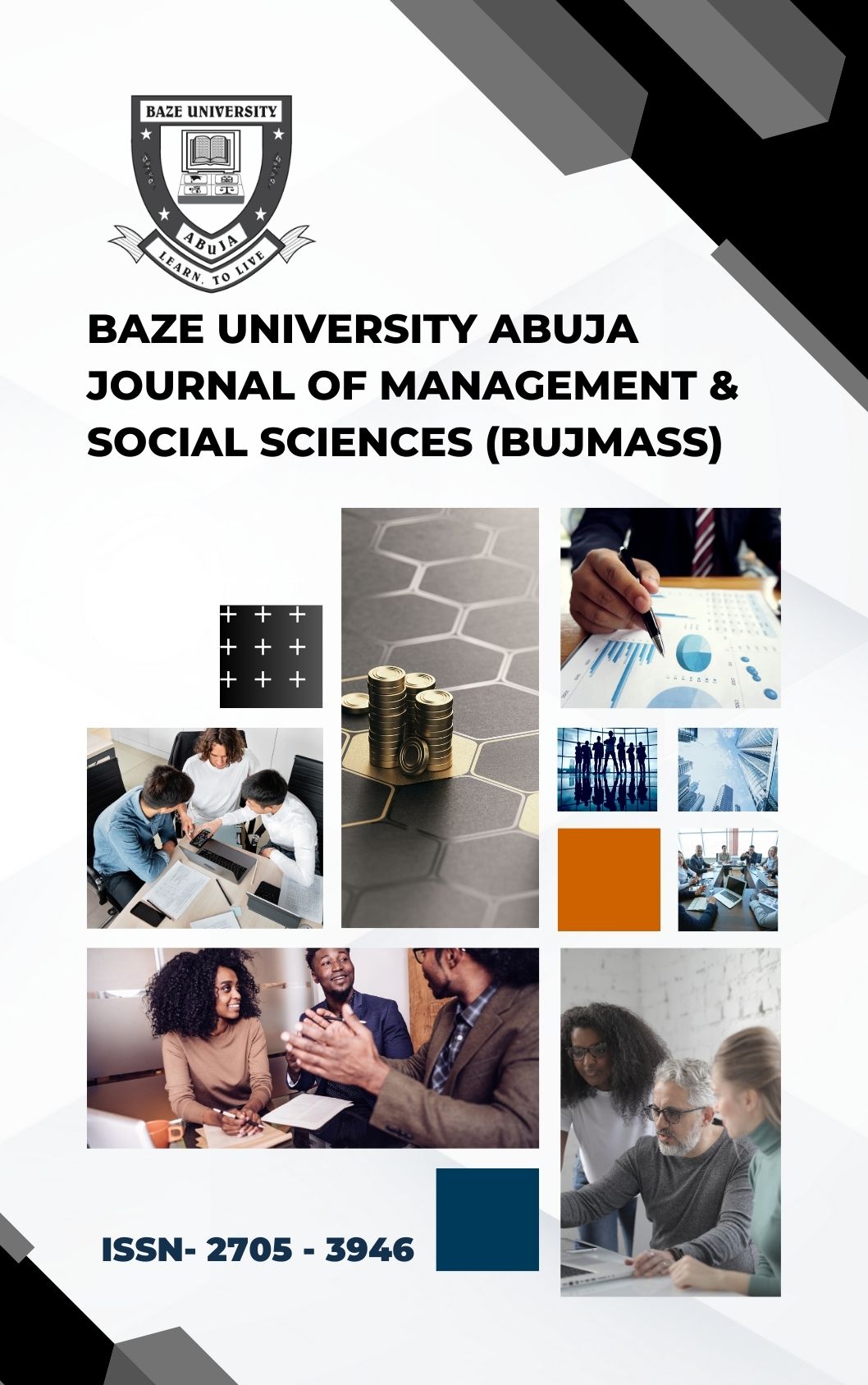Abstract
This study evaluated insecurity in Nigeria and its impact on economic growth based on secondary time series data (1986-2015). The issue of insecurity encompasses many problems, such as: high levels of poverty, unemployment, unsustainable debt burden, kidnappings, fraud, theft etcetera. The objectives were to investigate the impact of unemployment rate, poverty rate, internal security spending and defence expenditure on economic growth rate. All the data were stationary at order 1. ARDL (Autoregressive Distributed Lag) model with Bounds Test was used for testing variables and get the parameter estimates of the model. Endogeneous growth theory was adopted as theoretical framework. The study revealed predictable impact of insecurity proxied by poverty, unemployment, defence spending and internal security spending on growth rate. These variables proxying insecurity were shown to impact on economic growth. Unemployment rate was shown to be significant in impacting growth rate. Government raison de’tre is security, but if it fails at this, and insecurity is left to fester; serious damage will be done to the economy. So, government must do everything in its power to nip insecurity in the bud to stop it from wreaking havoc on the economy. The study recommends tackling unemployment by job creation, encouragement of entrepreneurship and boosting industry.
KEYWORDS: Insecurity, Unemployment, Poverty, Defence, Spending, Economy, Growth Rate.



 National Library of Nigeria
National Library of Nigeria.jpg) Association of Nigerian Authors
Association of Nigerian Authors Nigerian Library Association
Nigerian Library Association EagleScan
EagleScan Crossref
Crossref